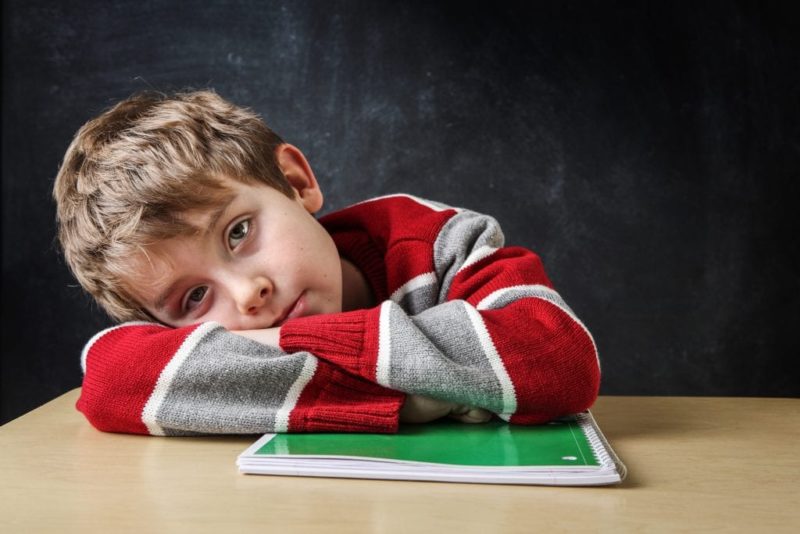If your child has ADHD, Occupational Therapy sessions can be really beneficial to their development. Read on to find out how we can help your child.
At Occupational Therapy Helping Children, we see a lot of kids in our clinics and in schools with ADHD. We work with parents and teachers, providing strategies to help kids with ADHD manage everyday life.
We help children with ADHD with:
- Organisation and planning
- Sensory processing difficulties
- Developing self-regulation skills
- Fine and gross motor skills
- Developing independence in everyday tasks
Let’s look into these five areas a bit more closely to see how we could help your child at Occupational Therapy Helping Children.
1. Organisation and Planning
We work with children to break tasks down into small achievable steps. This stops them from feeling overwhelmed by the task and not knowing where to start. These could be simple tasks such as managing daily homework, doing an assignment or organising their timetables. We find using visual information the best way to help kids with ADHD. For example, we might use simple visual charts, Post-It-notes, colour coding, and/or checklists.
2. Sensory Processing Difficulties
Studies have found that 40% of children with ADHD also have Sensory Processing Disorder (Ahn, Miller et. al., 2004). Children with sensory processing disorder (SPD)may be over- or under-responsive to sensory information; they may not be accurately interpreting sensory information or may have a sensory based motor disorder. As Occupational Therapists, we work with children with SPD to develop appropriate responses to sensation in active, purposeful and fun ways so the child can complete everyday activities at home and school. We also provide strategies for parents to help manage their children’s behaviour at home, and for teachers to help manage a child’s behaviour in the classroom. These might be simple things such as recommending ‘seamless socks’, heavy work activities, having calm down area at school or using a Movin’ Sit cushion to sit on.
3. Developing Self-Regulation Skills
Self-regulation means we are able to regulate our own feelings and behaviours. A child with poor self-regulation may have a meltdown over a small problem, like being told they have to stop playing with their favourite toy as the family are going out. At Occupational Therapy Helping Children, we use The Zones of Regulation® Curriculum to teach kids how to regulate their emotions and behaviour.
The Zones of Regulation® visual tool is divided into four different coloured areas that each represent a different emotion. For example the Blue Zone is seen as the sad, tired Zone and the Red Zone is when you are feeling angry. Children are taught to identify how they’re feeling and what Zone they are in. They then learn a range of strategies to help them get back in the Green Zone, which is when you’re calm, paying attention and well-regulated.

The Zones of Regulation®
4. Fine and Gross Motor Skills
Fine motor tasks involve the small muscles of the hands. Occupational Therapists help develop children’s handwriting skills, pencil grip, hand strength, eye-hand coordination, finger dexterity, and in-hand manipulative skills. Improvement in these areas might help a child to use cutlery, tie up their shoelaces or improve the legibility of their writing.
Gross motor tasks involve the large muscles of the body. As Occupational Therapists, we help children use both sides of their body together in a coordinated manner, develop core strength, cross the midline, improve their balance and general coordination skills. Improvement in these areas may help children to do activities like riding a bike, swimming independently or improving their soccer skills and team participation.
5. Developing Independence in Everyday Tasks
Occupational Therapists work with kids so they can complete age-appropriate tasks. This could be getting themselves ready for school in the morning, making a snack or packing their school bag. We are trained in task analysis, which is breaking tasks into small achievable steps. This way the child is always feeling positive and keen to master the task. As Occupational Therapists, we use a range of different strategies to develop independence in children. These may include visual charts, checklists, repeating instructions and lots of repetition.
Occupational Therapists work with lots of kids with ADHD in a range of different areas. At Occupational Therapy Helping Children we help kids with ADHD in a variety of ways, including:
- One-on-one Occupational Therapy sessions
- Sensory Intensive programme for children with sensory processing difficulties
- Our Social Skills and Self-Regulation group programmes
- Handwriting group programmes
If your child has ADHD and would benefit from some extra support, please contact us to see how we can best help your child.



